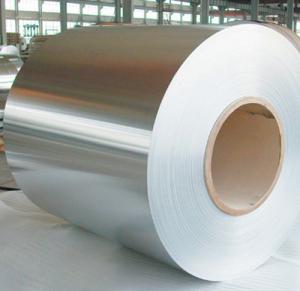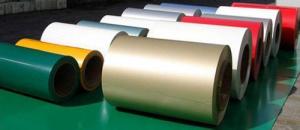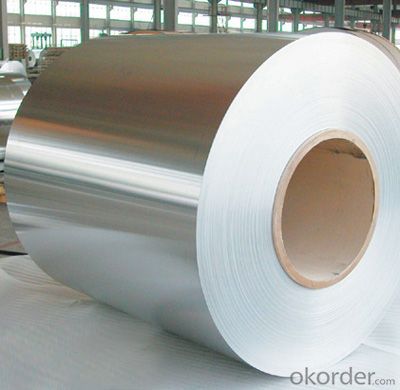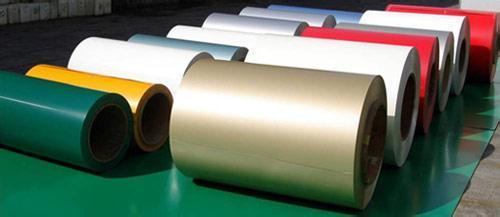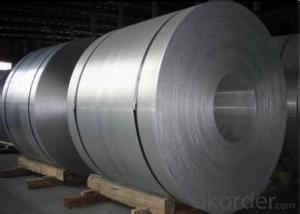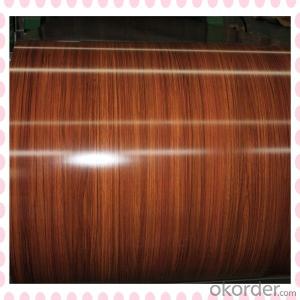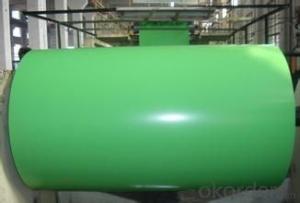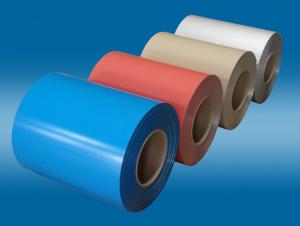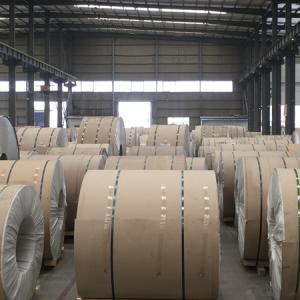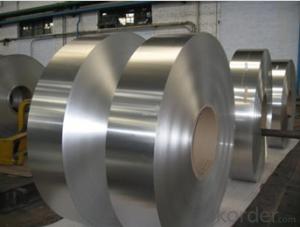Pure Aluminum Coil - Color Coated and Mill Finished Aluminum Coils
- Loading Port:
- Shanghai
- Payment Terms:
- TT or LC
- Min Order Qty:
- 5 m.t.
- Supply Capability:
- 9000 m.t./month
OKorder Service Pledge
OKorder Financial Service
You Might Also Like
Product Description
Alloy: AA1050/1100/3003/3005/3105/5005/5052 etc
Thickness:0.03mm—4.0mm
Width:10mm—1600mm
Coating:PVDF, PE
Coatingthickness: Usually16-25 micron, could be 33-40 micron
Color : According to Ral K7
Usage/ApplicationsCoated Aluminum Coil/Sheet
Construction and decoration, electronicappliances, lighting decoration, air-condition air pipe, sandwich panels anddrainage, etc
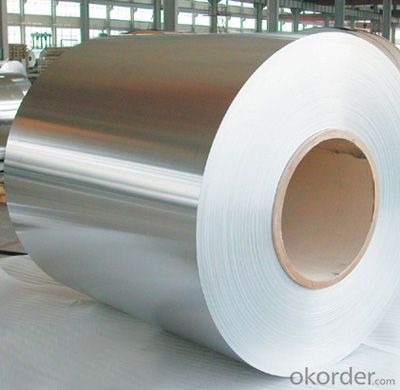

1 Building outer wall, curtain wallboard, airport, railway station, ect.
2 The old buildings renovation
3 Equipment unit, indoor compartment
4 Billboard, identification board, advertising signboard
5 Install the panel, show stand shelf inside
6 Industrial material protecting the car body of the old car
7 Other place that you want to use
Feature:
1 Light weight and easy to process
2 High peeling strength
3 Super weather resistance
4 Even coating and multiple colors
5 Excellent impact resistance
6 Excellent fireproof feature
7 Easy to maintain
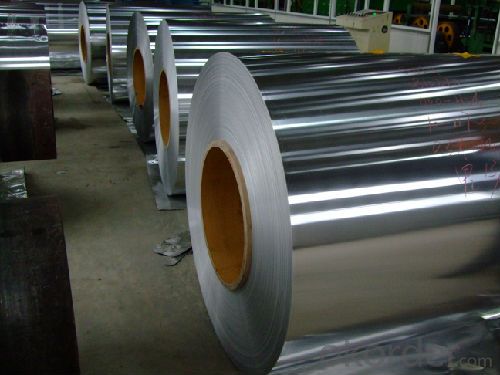
Application scope:
a) Building exterior curtain walls
b) Decoration and renovation additions for old buildings
c) Decoration of interior walls, ceilings, bathrooms, kitchens and balconies
d) Shop door decorations
e) Advertisement board display platforms and signboards
f) Wallboards and ceilings for tunnels
g) Industrial materials, materials for vehicles and boats
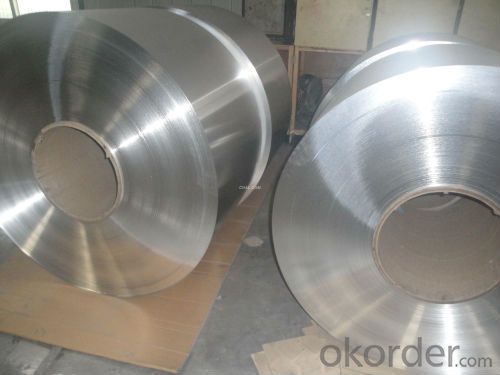
Packaging & Delivery
| Packaging Details: | Sea worthy packing wooden pallet or as customer's requests. |
| Delivery Detail: | 15-30days |
- Q: What is the shear strength of aluminum coils?
- The shear strength of aluminum coils can vary depending on various factors such as the alloy composition, temper, thickness, and processing conditions. Generally, aluminum alloys have lower shear strength compared to other materials like steel or titanium. However, aluminum coils are commonly used in applications where shear strength is not the primary concern, but rather their lightweight, corrosion resistance, and malleability properties. To get a more precise answer, it is necessary to specify the exact alloy, temper, and dimensions of the aluminum coil in question. These factors will significantly affect the shear strength of the material. It is also worth noting that shear strength can be influenced by factors like the presence of impurities, heat treatment, and the manufacturing process used. In conclusion, the shear strength of aluminum coils can vary depending on various factors, and it is essential to consider the specific alloy, temper, and dimensions to determine the exact strength of the material in a given application.
- Q: What are the rules or laws governing the use of aluminum coils?
- <p>Yes, there are regulations on the use of aluminum coils, which vary by country and industry. These regulations often pertain to safety, quality standards, and environmental impact. For instance, in the construction industry, aluminum coils used for roofing or cladding must meet specific standards for strength and durability. In food packaging, regulations may dictate the type of aluminum alloys used to prevent contamination. Additionally, there are environmental regulations that govern the disposal and recycling of aluminum coils to minimize their impact on the environment. Compliance with these regulations is crucial for manufacturers, suppliers, and users of aluminum coils to avoid legal penalties and ensure public safety.</p>
- Q: What will be the pros and cons of using each of these materials?One thing to keep in mind is that aluminum alloys are good conductors of electricity.
- One thing that you didn't mention is the size of the ladder. Depending on the size wood ladders are very heavy compared to aluminum and fiberglass. I prefer fiberglass ladders myself because they are sturdy, don't conduct electricity and the weight isn't too much if you have a large ladder.
- Q: This question asks for a comparison of the benefits and drawbacks of utilizing spring steel wire coils.
- <p>Spring steel wire coils offer several advantages such as high strength and durability, making them ideal for applications requiring resilience and resistance to deformation. They are also known for their excellent elasticity, which allows for consistent performance in dynamic applications. Additionally, spring steel wire coils can be easily formed into various shapes, providing versatility in design and functionality. However, they also have disadvantages, including potential for corrosion if not properly treated, and they can be more expensive than other types of wire due to the material's properties. Furthermore, spring steel wire coils may require specialized tools and equipment for handling and installation, adding to the cost and complexity of their use.</p>
- Q: Tossing away an aluminum can wastes as much energy as pouring out half of that can’s volume of gasoline.what does that mean?
- There are two actions going on here. Throwing away a can and pouring out gasoline. Both are examples of wasting energy and the writer was trying to put a visual to the comparison. Since cans come in various sizes, the amount of energy is relative to the size of the can. For example, throwing out a 12 oz can is the same as pouring out 6 oz of gas.
- Q: How much fluorocarbon and polyester paint should be used in production of aluminum coil and aluminum-plastic panel?
- The theoretical calculation is very complicated and far from actual result. In general, the manufacturer knows how much area and how thick their products can be painted.
- Q: This question asks for an explanation of the various materials used for coating aluminum coils.
- <p>Aluminum coil coating materials can be categorized into several types, including: 1. Organic coatings, such as polyester, acrylic, and polyvinylidene fluoride (PVDF), which offer good weather resistance and color stability. 2. Inorganic coatings, like fluoropolymers, which provide exceptional chemical resistance and high-temperature stability. 3. Metal coatings, such as zinc or other metals, used for enhanced corrosion resistance. 4. Ceramic coatings, which are known for their high durability and resistance to heat and chemicals. 5. Laminates, which combine multiple materials for specific performance characteristics. These coatings are chosen based on the intended application of the aluminum coil, such as in construction, automotive, or packaging industries.</p>
- Q: What are the maximum operating temperatures for aluminum coils?
- The specific alloy and application used can determine the maximum operating temperatures for aluminum coils. In general, aluminum coils can endure high temperatures without significant degradation or performance problems. Common aluminum alloys like 3003 and 5052 have a maximum operating temperature of approximately 300-400 degrees Fahrenheit (150-200 degrees Celsius). These temperatures are suitable for most industrial and commercial uses, including HVAC systems, refrigeration units, and heat exchangers. Specialized aluminum alloys, such as 4004 and 4343, are designed for high-temperature applications. These alloys can withstand temperatures up to 550-650 degrees Fahrenheit (290-340 degrees Celsius) without significant structural or performance damage. It's important to note that the maximum operating temperature can vary depending on factors like coil thickness, heat transfer conditions, and duration of exposure to high temperatures. Therefore, it is advisable to consult the manufacturer's guidelines or perform temperature tests to determine the safe operating limits for a specific aluminum coil in a particular application.
- Q: Can aluminum coils be painted or coated for aesthetic purposes?
- Yes, aluminum coils can be painted or coated for aesthetic purposes. Aluminum is a versatile material that can be easily painted or coated to enhance its appearance. Painting or coating aluminum coils can provide a wide range of color options and finishes, allowing for customization and aesthetic appeal in various applications. The paint or coating can also provide additional protection against corrosion and weathering, increasing the durability and longevity of the aluminum coils. However, it is important to select the appropriate type of paint or coating that is compatible with aluminum and suitable for the intended use to ensure optimal results.
- Q: What are the common fabrication techniques used for aluminum coils?
- Some common fabrication techniques used for aluminum coils include rolling, slitting, annealing, and coating.
Send your message to us
Pure Aluminum Coil - Color Coated and Mill Finished Aluminum Coils
- Loading Port:
- Shanghai
- Payment Terms:
- TT or LC
- Min Order Qty:
- 5 m.t.
- Supply Capability:
- 9000 m.t./month
OKorder Service Pledge
OKorder Financial Service
Similar products
Hot products
Hot Searches
Related keywords
